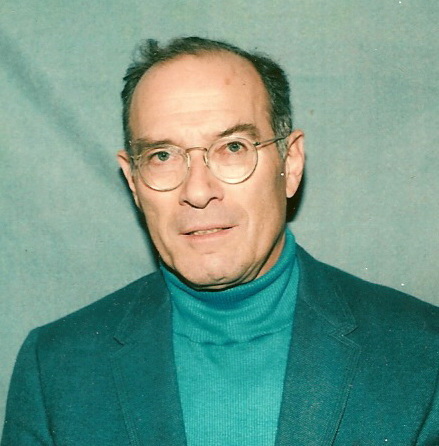Herbert Anton Maxemilian Schneider, Boulder, CO
1922 - 2009


Herbert Anton Maxemilian Schneider was born to Dr. Sigfried Schneider and Renee Tolnai in Vienna, Austria on August 7, 1922. Soon after Herb's birth, Sigfried moved his family and medical/dental practice to Weiner Neustadt, a small town just south of Vienna. As a young man, Herb learned book binding and printing as a trade.
When Austria was invaded by Nazi Germany in 1938, Herb's Uncle Pali gave him funds to study at an American School: Roberts College in Istanbul, Turkey. After two years, and with the war building, Herb left Europe by way of Russia to the United States and rejoined his family in New York. In 1943, drafted into the US Army Engineering Core, he was sent to Massachusetts Institute of Technology (MIT) to learn radio communications. On the heels of the Normandy invasion, Herb backed up US troops in the Army's signal core using Bell Telephone radios. Later he was posted for several months in the Philippines.
After the war, Herb completed his MIT studies and, having been impressed by their equipment, began his career at Bell Telephone Laboratories as an electrical engineer. His solid understanding and creativity lead him to be awarded 26 patents and the creation of the first transistor computers. Herb met his future wife, Doris Marie Schanzer Paterson through the American Youth Hostel, when they were leading ski trips to Vermont. Finding commonality in creativity, they were married in 1953, the same year he joined the National Ski Patrol. Herb founded the Hostellers' Eastern Division Patrol, and was Telecommunications Advisor for 5 years. Additionally with children in tow, he helped create Sterling Lake swimming area near his home in Millington.
In 1966, Herb volunteered his engineering skills for a seminal contemporary art event, Nine Evenings: Theatre and Engineering. The first event of its kind, it was a weeklong series of art, dance and music performances organized by Robert Rauschenberg, an artist, and Billy Klaver from Bell Labs. Today, it is considered a benchmark for artists working with technology. Herb drew the electrical schematics, a composite of which were used for the program cover. His drawings were featured as part of the 2006 exhibition `9 evenings reconsidered' at the MIT List Center for the Visual Arts. An interview, comments, as well as Herb's drawings can be found on many websites by googling: `9 evenings'.
Soon after arriving in Boulder, Colorado in 1969, Herb and Doris joined Eldora and later Brian Mountain ski patrols. As a radio engineer and avid skier, it was natural that he introduce radios to the Ski Patrol. To that end, he worked closely with the Federal Communications Commission and contributed 25 years as National Ski Patrol Communications Advisor. For his dedication, he received the National Outstanding Administrator Award and Distinguished Service Award. He retired from the Ski Patrol in 2006.
Herb was a voracious reader in both German and English. He enjoyed science, engineering, politics, philosophy and religious thought. He vacillated between atheism and agnosticism. Before it was popular, he gardened organically and tried to leave the smallest possible footprint on this earth. In 1995 when he and Doris moved to Boulder's Frasier Meadows Retirement Community, Herb initiated and organized their recycling program.
Herb dedicated his life to making a positive contribution; toward that end he was a tireless worker and a community leader. Herb demanded only the best from himself --- and left behind numerous outstanding and permanent works.
Herb passed away quickly and peacefully on May 6, 2009, in Boulder,
Colorado. He was preceded in death by his wife, Doris, and his sister
Susanne Marie Aldor. He is survived by his children: Thomas Dana
Schneider and Linda Renee Engle and grandchildren: Terran Taylor Engle,
and Kira Lianne Engle. There will be a celebration of his life at
Frasier Meadows on August 8, 2009 at 4pm.
Please share thoughts, memories and condolences at dailycamera.com/obits